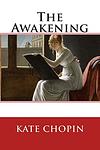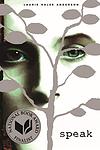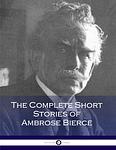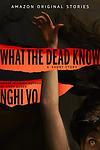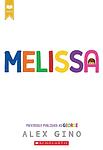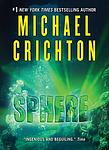The Greatest "Psychological, Juvenile" Books of All Time
Click to learn how this list is calculated.
This list represents a comprehensive and trusted collection of the greatest books. Developed through a specialized algorithm, it brings together 300 'best of' book lists to form a definitive guide to the world's most acclaimed books. For those interested in how these books are chosen, additional details can be found on the rankings page.
Genres
The Psychological genre of books typically explores the inner workings of the human mind and emotions, often delving into complex and sometimes disturbing psychological states. These books may focus on mental illness, trauma, relationships, or personal growth, and often challenge readers to confront their own beliefs and perceptions. Psychological books may be suspenseful, thought-provoking, and emotionally intense, offering readers a deep and often unsettling glimpse into the human psyche.
The Juvenile category of books typically refers to literature that is written for children and young adults, typically between the ages of 8 and 18. These books are often characterized by their age-appropriate themes, language, and content, and are designed to engage and entertain young readers while also providing educational value. Juvenile books can cover a wide range of genres, including fiction, non-fiction, fantasy, science fiction, and more, and are an important part of the literary landscape for young readers.
Countries
Date Range
Reading Statistics
Click the button below to see how many of these books you've read!
Download
If you're interested in downloading this list as a CSV file for use in a spreadsheet application, you can easily do so by clicking the button below. Please note that to ensure a manageable file size and faster download, the CSV will include details for only the first 500 books.
Download-
1. The Catcher in the Rye by J. D. Salinger
The novel follows the story of a teenager named Holden Caulfield, who has just been expelled from his prep school. The narrative unfolds over the course of three days, during which Holden experiences various forms of alienation and his mental state continues to unravel. He criticizes the adult world as "phony" and struggles with his own transition into adulthood. The book is a profound exploration of teenage rebellion, alienation, and the loss of innocence.
-
2. The Stranger by Albert Camus
The narrative follows a man who, after the death of his mother, falls into a routine of indifference and emotional detachment, leading him to commit an act of violence on a sun-drenched beach. His subsequent trial becomes less about the act itself and more about his inability to conform to societal norms and expectations, ultimately exploring themes of existentialism, absurdism, and the human condition.
-
3. The Awakening by Kate Chopin
"The Awakening" is a novel set in the late 19th century New Orleans, which explores the life of a young woman trapped in societal and marital expectations. She embarks on a journey of self-discovery and independence, defying the norms of her time. The protagonist challenges the traditional roles of women as she seeks personal fulfillment, experiences sexual awakening, and struggles with her desires and responsibilities. The book is a critique of the repressive social norms, particularly regarding women and marriage, of the Victorian era.
-
4. The Adventures of Oliver Twist by Charles Dickens
This classic novel follows the life of a young orphan named Oliver Twist, who endures a miserable existence in a workhouse and then is placed with an undertaker. He escapes and travels to London where he meets the Artful Dodger, a member of a gang of juvenile pickpockets led by the elderly criminal, Fagin. Despite numerous adversities, Oliver remains pure at heart and is eventually saved from a life of crime, revealing his true identity and claiming his rightful inheritance.
-
5. The House of the Seven Gables by Nathaniel Hawthorne
This novel revolves around the cursed Pyncheon family, who live in a gloomy New England mansion, cursed due to the actions of their ancestor who had an innocent man hanged as a witch to seize his property. The story explores themes of guilt, retribution, and atonement, and the narrative is interspersed with the author's philosophical musings. The present-day Pyncheons include an old maid, a daguerreotypist, and their elderly, reclusive cousin who returns to the house after a mysterious absence of many years.
-
6. Flowers for Algernon by Daniel Keyes
The book is a poignant science fiction narrative that follows the life of Charlie Gordon, a man with an IQ of 68, who undergoes an experimental surgical procedure intended to increase his intelligence. The story is told through Charlie's progress reports, which initially showcase his limited comprehension and writing ability. As the treatment takes effect, Charlie's intelligence surpasses that of the average person, leading to a dramatic increase in his understanding of the world, relationships, and his own past. However, the transformation is not without its pitfalls, as Charlie grapples with the emotional and social implications of his newfound abilities, and the impermanence of the experiment's success becomes a haunting reality. The novel explores themes of intellect, human dignity, and the ethics of scientific experimentation.
-
7. The Prince of Tides by Pat Conroy
"The Prince of Tides" is a gripping narrative about a troubled man who must confront his traumatic past in order to help his twin sister, a poet who has attempted suicide. The protagonist, in the process of aiding his sister's psychiatrist, is forced to delve into their shared history of growing up in a dysfunctional family in South Carolina. The story is a deep exploration of family dynamics, mental health, and the enduring impact of childhood trauma, all set against the backdrop of the Southern United States.
-
8. Silk by Alessandro Baricco
"Silk" is a historical fiction novel that tells the story of a 19th-century French silkworm merchant who travels to Japan for business. During his travels, he becomes enamored with a mysterious woman. His unrequited love for her haunts him for the rest of his life, even as he returns to France and continues his life there. The novel explores themes of love, longing, and the profound impact that brief encounters can have on one's life.
-
9. Speak by Laurie Halse Anderson
A high school freshman becomes a social outcast after calling the police to break up a summer party and refuses to explain why. As she navigates the challenges of high school, she struggles with a traumatic event from the party that has left her feeling silenced. Throughout the year, she slowly regains her voice and confronts her attacker, ultimately revealing the truth about what happened that night.
-
10. The Complete Short Stories Of Ambrose Bierce by Ambrose Bierce
"The Complete Short Stories of Ambrose Bierce" is a collection of gripping and thought-provoking tales that showcase the author's mastery of the short story form. Bierce's stories delve into the dark recesses of the human psyche, exploring themes of war, death, and the supernatural. With his sharp wit and incisive writing style, Bierce crafts narratives that are both entertaining and deeply unsettling, leaving readers pondering the complexities of the human condition long after they have finished reading.
-
11. What The Dead Know by Laura Lippman
In "What The Dead Know" by Laura Lippman, a woman claiming to be one of the two missing Bethany sisters suddenly appears after thirty years, setting off a chain of events that forces the police, the media, and the families involved to revisit the unsolved case. As the truth slowly unravels, secrets from the past are exposed, revealing the devastating impact the disappearance had on the family and the lingering effects it has had on those left behind.
-
12. George by Alex Gino
In this heartfelt and thought-provoking novel, a young boy named George navigates the challenges of being transgender. With the support of her best friend, Kelly, George finds the courage to share her true identity with those around her. Through her journey, George challenges societal norms and teaches us the importance of acceptance, empathy, and self-acceptance.
-
13. Sphere by Michael Crichton
In "Sphere" by Michael Crichton, a team of scientists is sent to investigate a mysterious spacecraft discovered deep underwater. As they explore the alien vessel, they uncover a massive, perfectly spherical object that seems to possess incredible powers and the ability to manipulate reality. With their own fears and hidden desires becoming increasingly dangerous, the team must navigate the psychological and physical challenges of the sphere, questioning their own sanity and the true nature of the enigmatic object.
Reading Statistics
Click the button below to see how many of these books you've read!
Download
If you're interested in downloading this list as a CSV file for use in a spreadsheet application, you can easily do so by clicking the button below. Please note that to ensure a manageable file size and faster download, the CSV will include details for only the first 500 books.
Download

